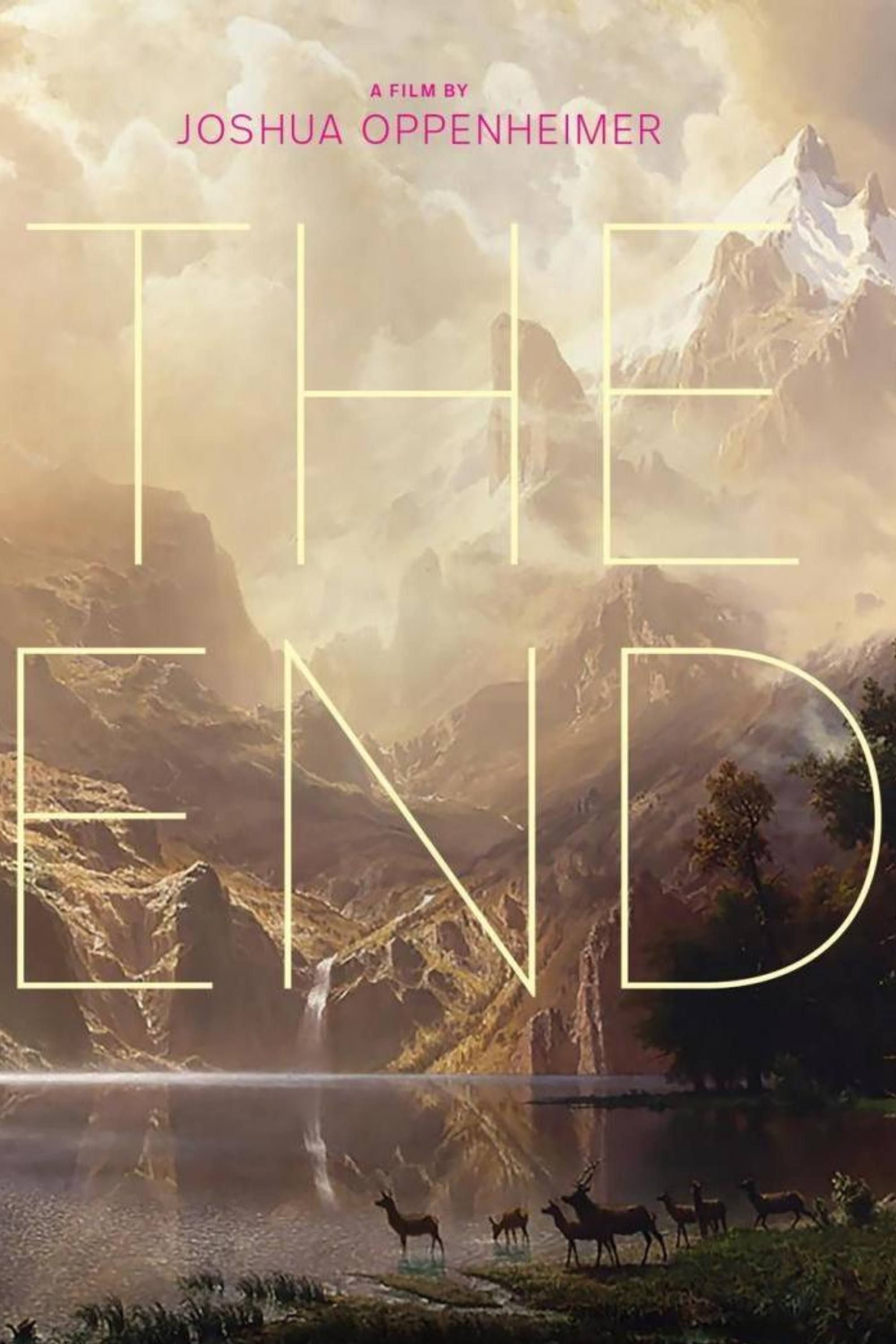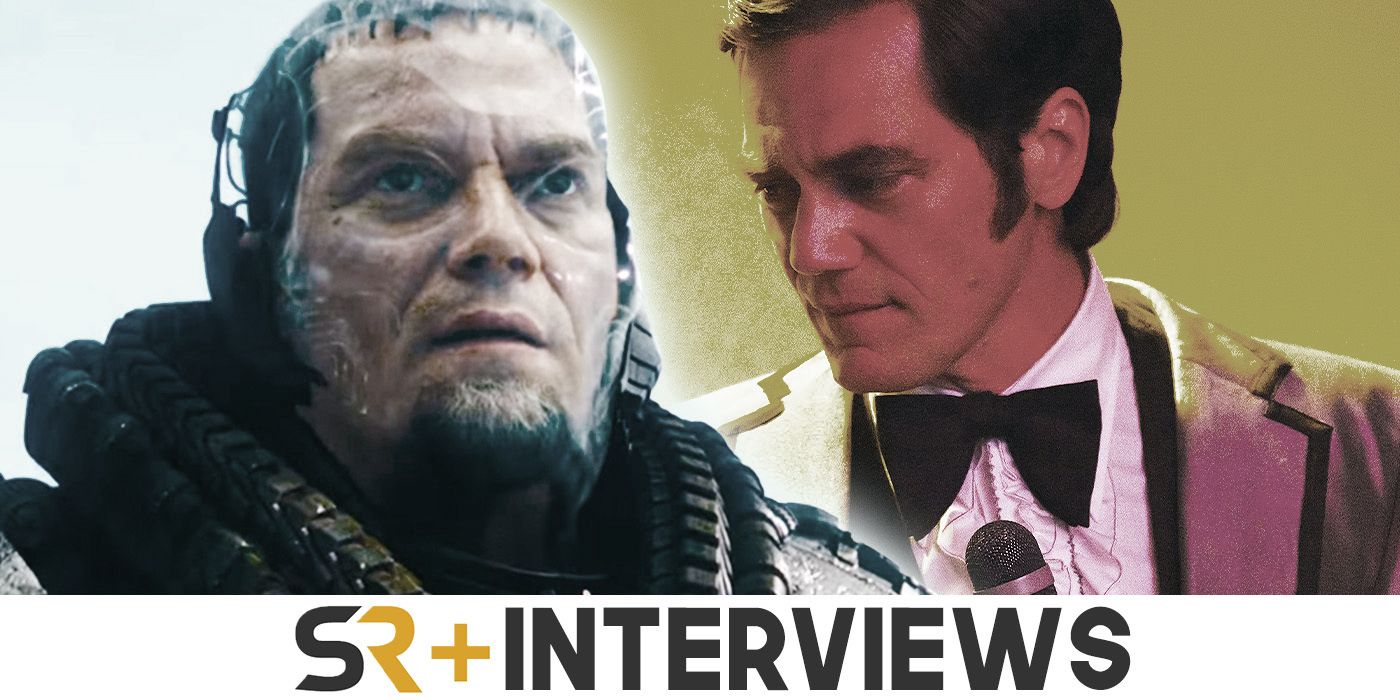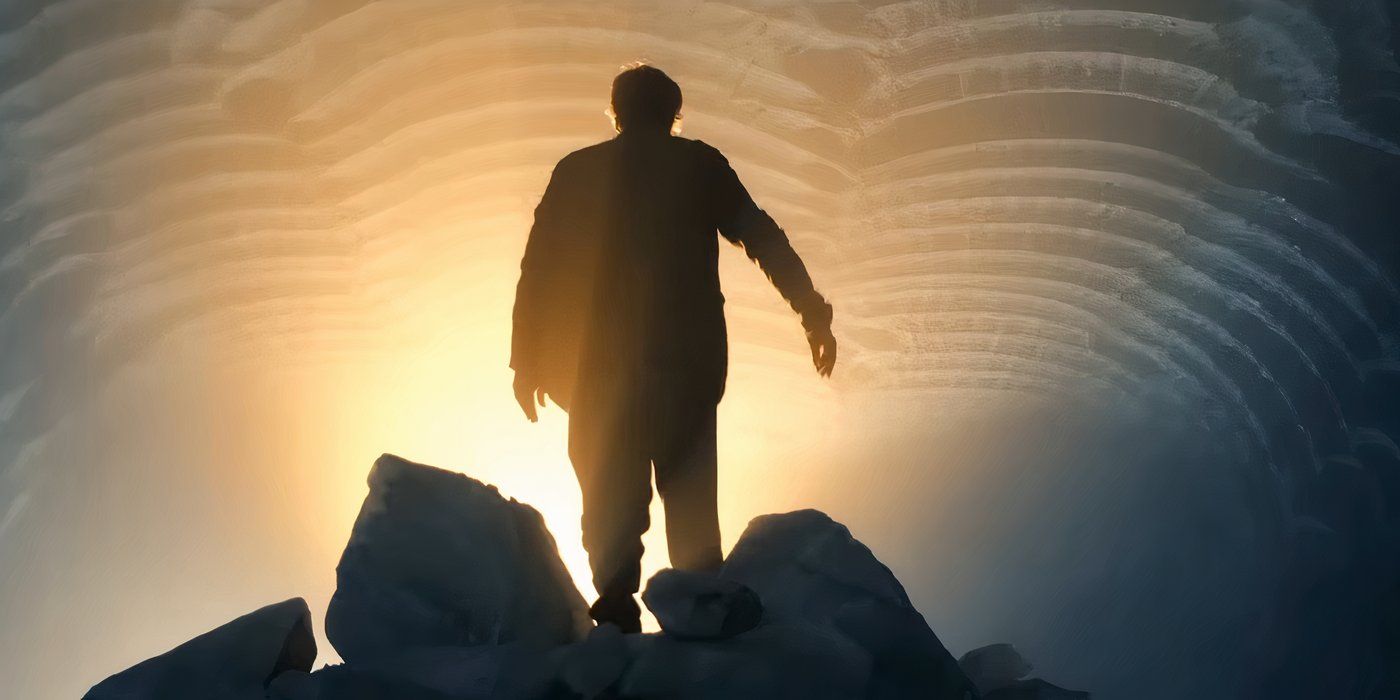The End‘s Michael Shannon explores more than just the end of the world in Joshua Oppenheimer’s uniquely bleak take on the movie musical. Set years after ecological events have rendered most life on the surface of the Earth impossible, the film follows a family and their personal staff as they struggle to maintain a sense of normalcy in their bunker deep beneath the Earth. The patriarch of the family, only known as Father in the movie, is an interesting contradiction of a man whose efforts to assuage his guilt as a former industrialist are explored throughout the film.
It’s a powerful film performance by Michael Shannon, with flashes of the intensity that have often defined some of his most famous characters like Zod from Man of Steel or Nelson Van Alden from Boardwalk Empire. However, there’s also a deep vulnerability and almost pitiable element to the character that Shannon explores through bursts of introspection and song. During an interview with ScreenRant ahead of The End‘s theatrical debut, Michael Shannon reflected on what he looks for in a role, how Father compares to his former characters like Zod, and the importance of finding surprises in performance.
The End’s Father Is A Character That Is Full Of Contradictions
“I like stories that ask questions and inspire people to examine who they are and how they’re participating in the world.”
Screen Rant: You’ve played so many different types of roles over the years, ranging from musicals like The End to action blockbusters, gangster epics, dramatic fare, murder mysteries, and unexpected comedies — what do you see as an ideal role?
Michael Shannon: I don’t know if I have an ideal role. I mean, I like telling stories that I think might have some intrinsic value in our culture. I like stories that ask questions and inspire people to examine who they are and how they’re participating in the world. [
The End
] fell right into that category.
Related
Michael Shannon on George & Tammy and the Return of General Zod in The Flash
Michael Shannon talks about some of his most beloved roles, including George Jones in George & Tammy, General Zod in The Flash, and Elvis Presley.
Screen Rant: As you play him, Father is a very interesting set of contradictions. As the audience, we’re frustrated with many of his decisions and judge him for his choices, but you also feel sympathetic for the depth of his guilt and internal strife. How do you approach that kind of character balance?
Michael Shannon: Well, it’s really tricky. I mean, for all of us, telling the story was pretty taxing on our imaginations. It’s a scenario that’s hard to envision. Being in a bunker like that for 25 years. I used to say during rehearsal, I don’t know how all these people haven’t completely lost their minds. Maybe in a way, they have. But I mean even more severely, like just speaking gibberish and walking around in circles. The fact that they’re managed to hold on to some semblance of decorum is staggering.
It’s just about time. They’ve been down there a long time and even though they’re the fortunate ones, in a sense, because they’re not up on the up on the earth trying to survive, they are experiencing a different kind of trauma. No matter how nice your bunker is, it’s not nice to live in a bunker. It’s not nice to live in a bunker. In the end, it’s still a bunker.
Finding The Humanity In Father (And Zod)
“It’s kind of like Shakespeare. There can be a lot of different Hamelts, there can be a lot of different Zods.”
Screen Rant: Speaking of the Bunker, I did want to talk a little about the theatrical elements of the film. It’s a very tight setting, only a handful of characters in a couple of rooms. Do the different scales of production on something like The End compared to the larger settings like Boardwalk Empire or the DC Extended Universe impact your approach to performance?
Michael Shannon: Not so much. I mean, even when I was doing
Man of Steel
, I didn’t really look at it as a big blockbuster. I just looked at the story in the situation. I didn’t think I was playing some supervillain or something. I just thought of [Zod] as an individual who’s trying to do their job. He’s just trying to protect his people. When I look back, to a certain extent, I played a lot of characters that are just trying to protect their people. You know, that’s something that General Zod and Father have in common.
Michael Shannon was the second actor to play General Zod in live-action, following Terrance Stamp’s performance in
Superman II
. Shannon appeared as the Kryptonian General in
Man of Steel
, and
reprised the role of Zod in
The Flash
. Zod’s body was also used to create Doomsday in
Batman v. Superman: Dawn of Justice
.
I’ve got to ask, do you have any advice for the next actor who follows in your Kryptonian shoes and plays Zod?
Michael Shannon: I don’t know. I mean, so much of it is connected to the writing. The script is always going to be different. What Terence Stamp did was very different from what I did. It’s kind of like Shakespeare. There can be a lot of different Hamelts, there can be a lot of different Zods. It’s not my property. It’s literally not my property. So [my advice to the next Zod actor is] make it your own. That’s always the best thing to do. No matter what situation you’re in, as an artist, just make it your own.
The Importance Of Surprises & Vulnerability In The End
“I want everything to be a surprise every moment.”
Screen Rant: There’s an inherent vulnerability that comes with singing, especially in a full musical. What was it like to explore that in The End?
I actually really appreciated the opportunity. It didn’t really make me nervous. That’s not because of my ego… I wasn’t trying to be good or bad or anything. I appreciate singing as I’m performing, because I feel like it gives you the maximum amount of real estate to actually express yourself. It really can move you away from your mind, which isn’t terribly helpful when you’re doing this work, and tap you into a deeper source. I quite enjoyed it. I really like singing, and I love music. Music is my favorite thing. I didn’t have any qualms about it.
In every production, there’s something you discover that you weren’t expecting to find. With that in mind, what would you say surprised you the most about Father and The End?
That’s interesting. That is such a difficult question. I mean, to me, every day at work is kind of surprise. I don’t prearrange my performance. I’m not one of those people who goes and checks all my facial expressions in the mirror before I get on set. I try to show up wide open and see what comes. I don’t want to not be surprised. I want everything to be a surprise every moment.
It’s hard to pick one out, but it’s such a beautiful thing to see. It doesn’t mean you don’t prepare. You prepare a great deal. You put a lot of thought into it. You consider a lot of different possibilities. But in the midst of all that preparation, the paramount thing is to go in completely open and be hyper-sensitive to to your cast mates and to the scenario as it unfolds.
More About The End (2024)
Twenty-five years after environmental collapse left the Earth uninhabitable, Mother, Father and Son are confined to their palatial bunker, where they struggle to maintain hope and a sense of normalcy by clinging to the rituals of daily life—until the arrival of a stranger, Girl, upends their happy routine. Son, a naïve twenty-something who has never seen the outside world, is fascinated by the newcomer, and suddenly the delicate bonds of blind optimism that have held this wealthy clan together begin to fray. As tensions rise, their seemingly idyllic existence starts to crumble, with long-repressed feelings of remorse and resentment threatening to destroy the family’s delicate balance. But their reckoning with difficult truths also points to a different way forward, one based on acceptance, love, and a capacity for change.
Check back soon for our other The End interview here:

A wealthy family lives in isolation within a luxurious bunker, unaware of the world beyond their walls. When a mysterious girl arrives at their doorstep, her presence threatens to unravel the delicate balance of their secluded existence, leading to a tense exploration of trust, survival, and buried secrets.
- Director
- Joshua Oppenheimer
- Release Date
- December 6, 2024
- Writers
- Rasmus Heisterberg , Joshua Oppenheimer

